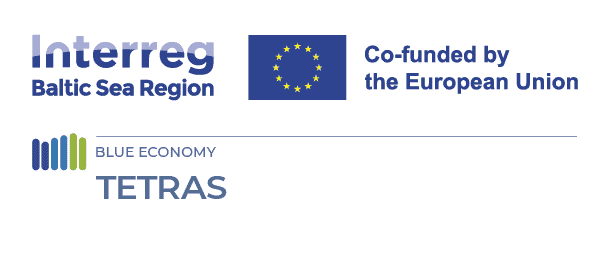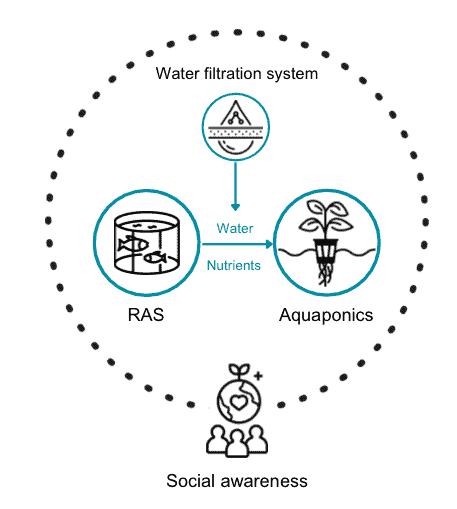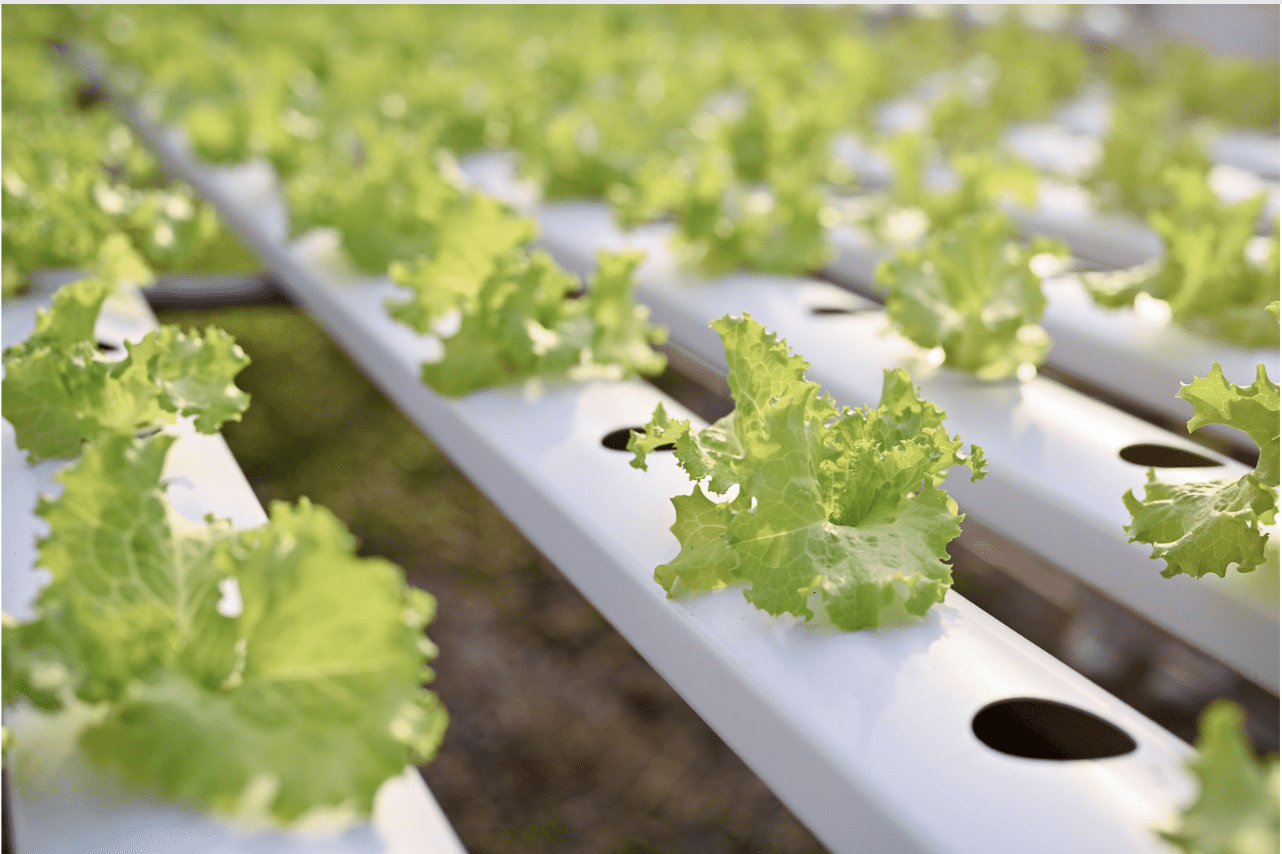
Pilot 4 - Small-scale RAS for data collection and social awareness
27 April 2023
Pilot Owner: Guldborgsund Municipality Bioeconomy Hotspot
Location: Guldborgsund, Denmark
Partners involved: University of Gdansk (PL), Klaipeda University (LT), and Klaipeda Science and Technology Park (LT)
Type of symbiosis: water, nutrients, knowledge
Keywords: RAS, aquaponics, water treatment system, social awareness, LCA, knowledge transfer
Context
Aquaculture’s importance continues to grow at a time when environmental concerns are at the forefront of people’s minds and consumers are increasingly interested in sustainable food production. Social perception plays a crucial role in promoting sustainable aquaculture practices and the RAS industry’s growth and development.
Among them, recirculating aquaculture systems (RAS) are gaining significance as they protect wild fish stock by offering a sustainable and environmentally friendly alternative to traditional offshore aquaculture. RAS are closed-loop systems that treat and recirculate the water and filter out waste. RAS can be established in any location, regardless of whether freshwater or marine species are cultured, making them a flexible and efficient solution for meeting the increasing demand for seafood with a controllable environmental impact.
RAS technologies are developing quickly, and it is increasingly common to hear about new projects in different locations. Despite the growing positive perception of RAS as a way for efficient and sustainable food production, some challenges affect its social acceptance. One of the main challenges is the lack of social awareness and public understanding of the technology, which can lead to misconceptions and distrust. Additionally, the investment costs associated with establishing a recirculating aquaculture system can be a significant barrier for small-scale farmers. Concerns about the potential environmental impacts of the technology, such as energy and water use, may also arise. Addressing these challenges requires documentation, education, and communication to improve the understanding of these systems.
Aim & Outcome
Led by the Bioeconomy Hotspot Gulborgsund (Denmark), Pilot 4 aims to establish a small-scale (RAS) to improve social awareness of RAS. The pilot will also showcase the potential symbiosis of RAS and crop/plant production. As part of the pilot activities, a filtration system for water cycled from fish to agro-production will be evaluated. The suitability of plant species for integration into the RAS aquaponics system will be investigated too.
Housed within the grounds of CELF (Centre for Education Lolland-Falster) in Nykøbing F, the pilot will serve as a hands-on learning tool for teachers and students from the Technical Gymnasium, Business College, and School of Food Educaion and Training. The pilot will integrate seamlessly into their regular curriculum and become the focal point for specific studies and projects. Additionally, the pilot will be open to the public contributing to a better understanding of the concept of circularity, efficient resource use, and symbiosis.
Pilot 4 will provide factual material for developing communication and dissemination material aimed at informing the public and consumers about seafood production and recirculating aquaculture systems.
Relevance
Social perception plays a crucial role in promoting sustainable aquaculture practices and the RAS industry’s growth and development. Usually, commercial RAS facilities are not accessible to the public. Pilot 4 will bring RAS closer to people, it will showcase how these systems work, and their advantages; it will contribute to communicating and demystifying RAS production. It will allow farmers focused on other crops to see the potential of RAS to complement their activities. Schools and other education partners will have the opportunity to have hands-on experience with RAS and aquaponics.
Pilot 4 will bring recirculating aquaculture and industrial symbiosis to the table, to start informed conversations about these systems with the expectation of increased social acceptance and fostering their growth and investment.
Vision & Impact
“We are very excited about the prospect of being able to bring RAS-based fish production onto the agenda in our part of Denmark. Traditionally, fish farming has been based in the mid and west of Denmark, but with RAS farming we are hoping to open the door to new horizons for farmers.
The TETRAS pilot will enable us to address the issues of social acceptance, animal welfare, as well as the environmental footprint of such production units, as without a well-documented pilot with data collection and LCA, there is not much hope of establishing and developing this sector in Denmark. The zoo gives us an ideal base to prepare the next generation of farmers and consumers for a new way of producing fish that can supplement an already successful agricultural sector on Lolland-Falster,” says Hilary Karlson, TETRAS project manager for Guldborgsund Municipality.
Contact
Hilary Karlson
hika@guldborgsund.dk
Mette Jørgensen
mej@guldborgsund.dk
References
Correia MV, Peres H, Almeida M and Guimarães L (2019). Improving perception and acceptability of aquaculture through hands-on experimental activities for schools. Front. Mar. Sci. Conference Abstract: XX Iberian Symposium on Marine Biology Studies (SIEBM XX). doi: 10.3389/conf.fmars.2019.08.00051. URL: https://www.frontiersin.org/10.3389%2Fconf.fmars.2019.08.00051/event_abstract
Fudge M, Higgins V, Vince J and Rajaguru R (2023). Social acceptability and the development of commercial RAS aquaculture. Aquaculture 568,
URL: https://www.sciencedirect.com/science/article/abs/pii/S0044848623000686
Interactive map showing pilot locations. Use the arrow keys to move the map view and the zoom controls to zoom in or out. Press the Tab key to navigate between markers. Press Enter or click a marker to view pilot project details.







